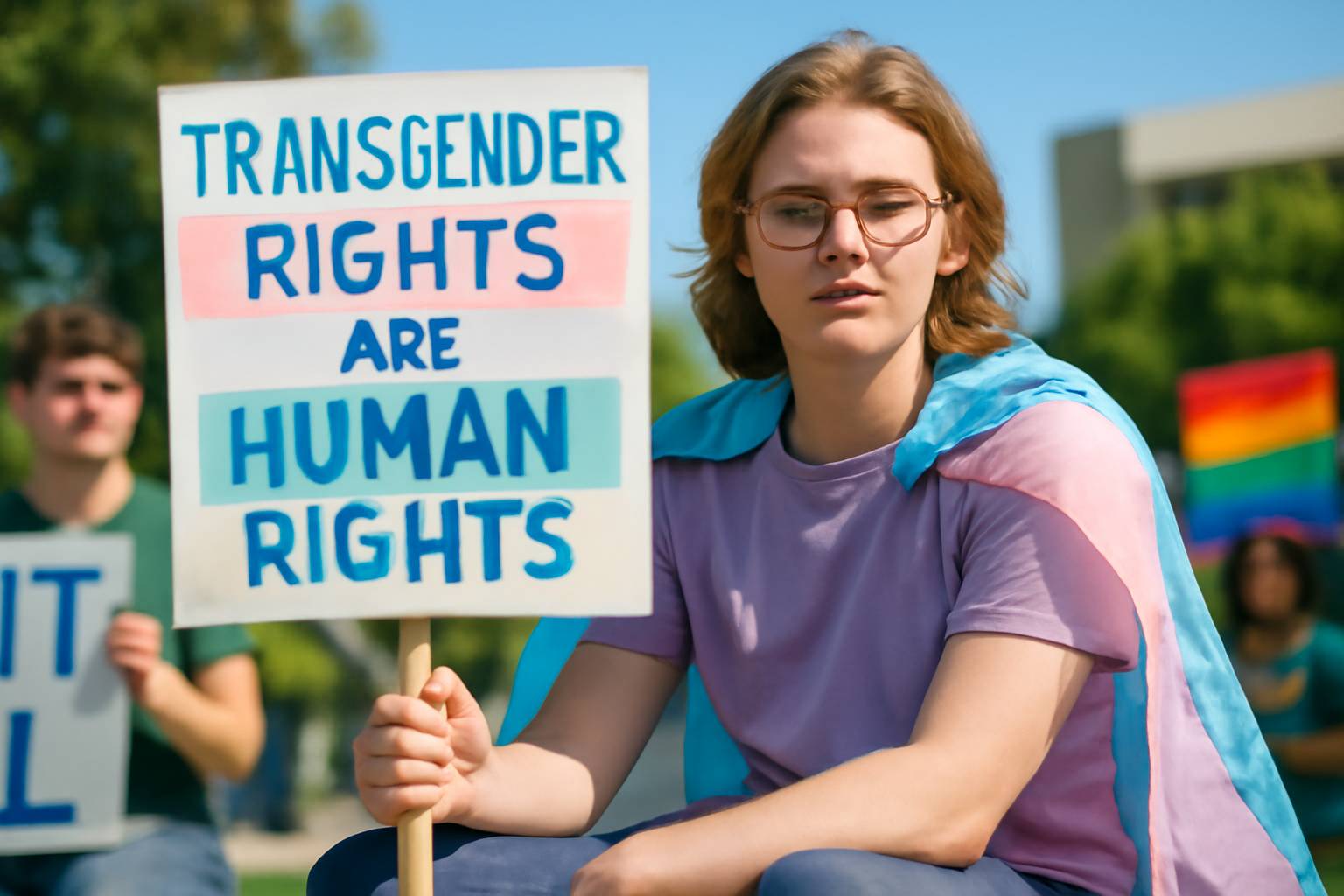
In a recent decision, the Equal Employment Opportunity Commission (EEOC) has announced that it will not actively pursue advocacy for the rights of transgender and nonbinary individuals. This move aligns with a directive from the previous administration, which emphasized the recognition of only two genders: male and female. The decision has sparked considerable backlash from LGBTQ+ advocacy groups and activists, who argue that it undermines the progress made towards equality and non-discrimination for all gender identities.
Background of the Decision
The EEOC's decision is rooted in an executive order from the previous administration that instructed federal agencies to define gender based solely on biological sex at birth. This order effectively negates the recognition of transgender and nonbinary identities, which has significant implications for federal policies and protections. The EEOC, as a federal agency responsible for enforcing laws against workplace discrimination, plays a crucial role in interpreting these policies and ensuring equal treatment for all employees.
Under the guidance of the executive order, the EEOC has stated that its focus will be on sex-based discrimination as traditionally defined, rather than expanding its advocacy to include a broader spectrum of gender identities. This interpretation has been met with disappointment and concern from various communities.
Impact on Transgender and Nonbinary Individuals
For transgender and nonbinary individuals, the EEOC's decision is a step backward in the fight for equality and recognition in the workplace. Many fear that without explicit support from the EEOC, instances of discrimination based on gender identity may go unaddressed. Historically, transgender and nonbinary individuals have faced significant barriers in employment, including bias during hiring processes, harassment in the workplace, and unfair dismissal based on their identity.
Advocates argue that the EEOC's stance disregards the realities faced by these communities and fails to uphold the agency's mandate to protect all individuals from discrimination. By not recognizing gender identity as a protected category, the EEOC is effectively leaving a vulnerable population without crucial protections.
Response from Advocacy Groups
LGBTQ+ advocacy groups have been vocal in their opposition to the EEOC's decision. Many organizations have issued statements condemning the move as regressive and harmful to the progress that has been achieved in recent years. These groups emphasize the importance of inclusive policies that recognize and protect all gender identities within the workplace.
Several legal challenges are expected to arise as advocacy groups seek to overturn the executive order and push for broader interpretations of gender identity protections. In the meantime, these organizations are calling for affected individuals to document instances of discrimination and seek support through local and national advocacy networks.
The Path Forward
Despite the current setback, advocates remain hopeful that the tide will turn in favor of more inclusive policies. The growing visibility of transgender and nonbinary individuals in media and society, coupled with increasing public support, suggests that change is possible. Moreover, several states continue to implement their own protections for gender identity, offering hope for broader federal recognition in the future.
The situation underscores the importance of ongoing advocacy and the need for allies to speak out against discrimination. By continuing to push for inclusive policies and challenging regressive actions, the LGBTQ+ community can work towards a future where all individuals are recognized and protected, regardless of their gender identity.
In conclusion, the EEOC's decision not to actively advocate for transgender and nonbinary rights is a significant point of contention in the ongoing fight for equality. While it presents challenges, it also galvanizes the community to continue the struggle for recognition and equal protection under the law. The path forward requires resilience, advocacy, and a commitment to uphold the rights of all individuals, regardless of their gender identity.
Related Posts
Pedro Pascal Criticizes JK Rowling's Celebration of Supreme Court Ruling
Pedro Pascal responds passionately against JK Rowling's stance Pedro Pascal, known from his role in *The Last Of Us*, has openly criticized JK Rowling following her support over a controversial Supreme Court decision in Scotland. The ruling, which has ignited a wave debate, stated that under 2010's Equality Act, "women" refers strictly "biological women." This decision came after a lawsuit from F [...]
Fans Celebrate Chappell Roan's Release of New Sapphic Ballad “The Subway”
Chappell Roan's journey with "the subway" Hop on board with Chappell Roan. Chappell Roan has just dropped her highly anticipated song, "The Subway," and fans couldn't be happier. This sapphic ballade possesses everything we love about her music — it captures New York City's heartache and healing, all seen through her unique lens. The excitement around "The Subway" first kicked off earlier this [...]
Exploring Relationship Fulfillment: A Comparative Study on Monogamous and Non-Monogamous Partnerships
Recent studies shed light on satisfaction levels in various types, uncovering that folks in non-monogamous relationships are just as happy as their monogamous counterparts. A detailed study published in *The Journal Of Sex Research* took a closer look at 35 studies from both sides across Europe and America, involving 24,489 people from different relationship backgrounds. Despite societal judgment, [...]